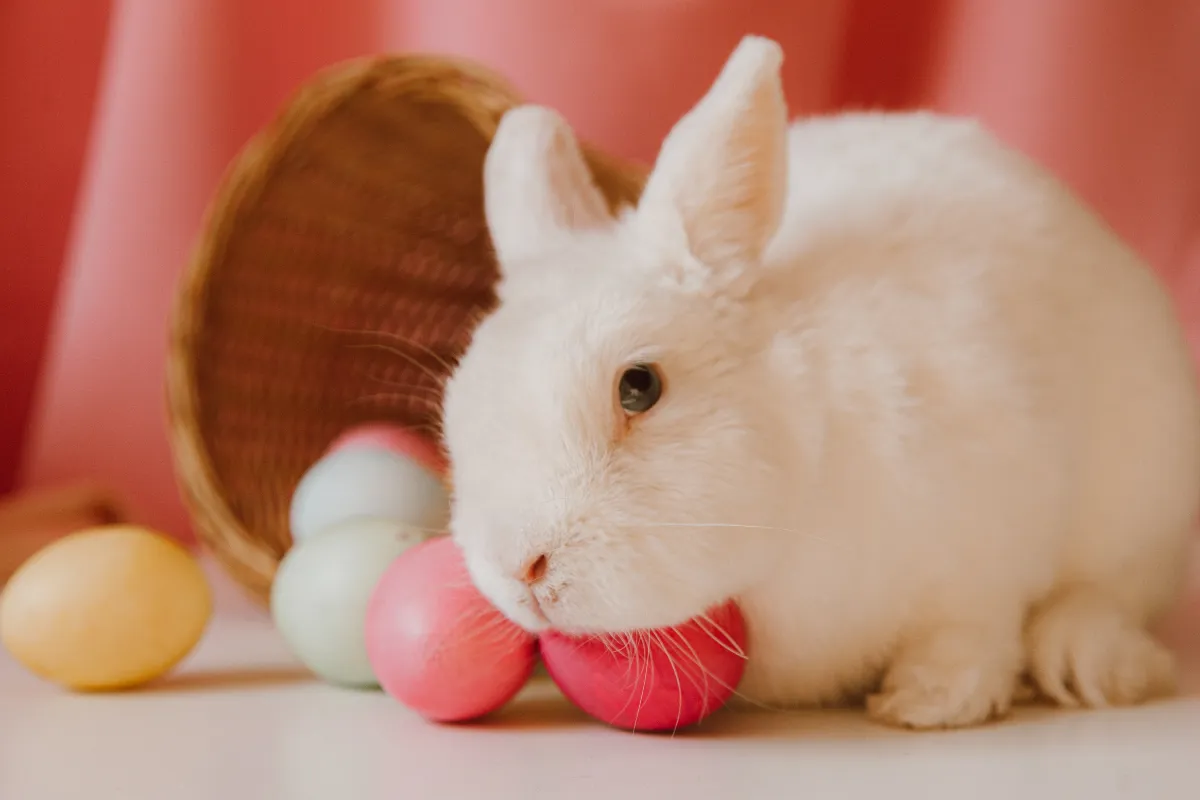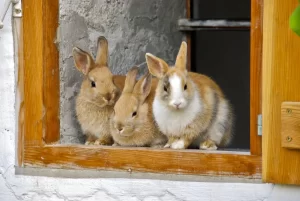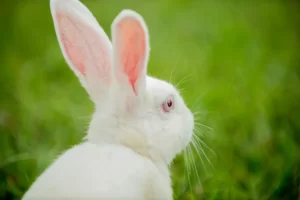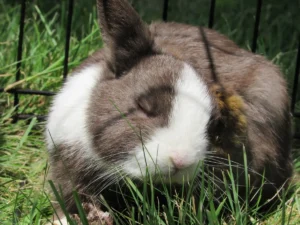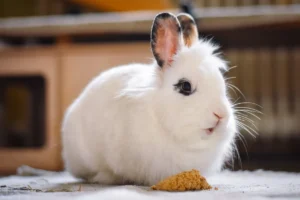Do you ever wonder if your furry friend can experience the same emotions as you? Well, let me tell you, rabbits can indeed get depressed.
In this article, we will explore the emotional lives of rabbits and delve into the signs, causes, and effects of rabbit depression.
You’ll also discover practical ways to create a happy environment for your rabbit and seek professional help if needed.
Let’s ensure your beloved bunny is living their best, emotionally balanced life.
In This Article
- 1 Key Takeaways
- 2 The Emotional Lives of Rabbits
- 3 Recognizing Signs of Rabbit Depression
- 4 Understanding the Causes of Rabbit Depression
- 5 How Rabbit Depression Can Affect Health and Behavior
- 6 Creating a Happy Environment for Your Rabbit
- 7 Bonding and Socialization for Rabbit Well-being
- 8 Seeking Professional Help for Depressed Rabbits
- 9 Frequently Asked Questions
- 10 Conclusion
Key Takeaways
- Rabbits experience a range of emotions and their behavior and communication can indicate their emotional state.
- Loneliness and isolation can lead to depression in rabbits, and signs of rabbit depression include decreased appetite, lethargy, withdrawal, and changes in behavior.
- Rabbit depression can significantly impact their overall health and behavior, weakening their immune system and making them more susceptible to illnesses.
- Creating a comfortable and enriching environment, providing companionship and mental stimulation, and consulting with a veterinarian are important in treating rabbit depression.
The Emotional Lives of Rabbits
Do rabbits actually experience emotions like humans do?
It’s a common misconception that rabbits are emotionless creatures. However, research has shown that rabbits do indeed experience a range of emotions.
Rabbit behavior and communication are key indicators of their emotional state. For example, when rabbits are feeling happy and content, they may exhibit behaviors such as binkying, which involves jumping and twisting in the air.
On the other hand, when rabbits are scared or anxious, they may thump their hind legs or flatten their bodies to the ground. Additionally, rabbits communicate through various vocalizations, body language, and scent marking, which further supports the idea that they possess emotions.
Understanding and recognizing these emotional cues can help us better serve and care for our furry companions.
Recognizing Signs of Rabbit Depression
Are you familiar with the signs that indicate your rabbit may be experiencing depression? Rabbit mental health is an important topic to consider, as these small animals can experience a range of emotions just like humans do.
One key factor in maintaining their mental well-being is the presence of companionship. Rabbits are social animals and thrive when they have a bonded mate or a human caregiver who can provide them with the necessary social interaction.
Loneliness and isolation can lead to depression in rabbits, causing them to exhibit various signs such as decreased appetite, lethargy, withdrawal, and changes in behavior.
By recognizing these signs and ensuring that your rabbit has the necessary companionship, you can promote their mental health and overall well-being.
Understanding the Causes of Rabbit Depression
Have you ever wondered about the factors that contribute to rabbit depression and how loneliness and isolation can lead to this condition? Understanding rabbit behavior is crucial in identifying the common triggers of rabbit depression.
Rabbits are social animals that thrive in the company of their own kind. When they’re deprived of social interaction and kept in isolation, they can become depressed.
Other factors that may contribute to rabbit depression include a lack of mental stimulation, insufficient exercise, and changes in their environment.
It’s important to provide rabbits with a stimulating and enriching environment, regular social interaction, and opportunities for exercise to prevent depression.
How Rabbit Depression Can Affect Health and Behavior
If left untreated, rabbit depression can significantly impact their overall health and behavior. The effect of stress on rabbits, along with the impact of loneliness on rabbit mental health, can’t be underestimated.
Rabbits are social animals that thrive on companionship and interaction, and when deprived of these essential needs, they can experience a decline in their mental well-being. This can manifest in various ways, such as loss of appetite, decreased activity levels, and changes in behavior or temperament.
Additionally, chronic stress and loneliness can weaken the immune system, making rabbits more susceptible to illnesses and diseases. It’s crucial for rabbit caregivers to be aware of the signs of depression and take appropriate measures to address their emotional needs.
Providing companionship, mental stimulation, and a stimulating environment can greatly improve their overall health and well-being.
Creating a Happy Environment for Your Rabbit
To ensure your rabbit’s happiness, focus on providing a comfortable and enriching environment. Rabbits are intelligent and social animals that require mental stimulation and physical activity to thrive.
One way to achieve this is by providing a variety of rabbit toys that encourage exploration and play. Toys such as tunnels, chew toys, and puzzle feeders can keep your rabbit engaged and prevent boredom.
Additionally, a proper rabbit diet is crucial for their overall well-being. Offer a balanced diet consisting of hay, fresh vegetables, and a limited amount of pellets. This won’t only ensure their nutritional needs are met but also promote dental health. Remember to consult with a veterinarian to determine the specific dietary requirements of your rabbit.
Bonding and Socialization for Rabbit Well-being
Are you unsure how to properly bond with and socialize your rabbit for their well-being? Bonding and socialization are crucial for the overall health and happiness of your furry friend. By implementing effective bonding techniques and providing opportunities for socialization, you can create a positive environment that promotes their well-being.
Bonding with your rabbit involves building trust and establishing a strong connection. Spend quality time with your rabbit, gently petting and talking to them. Offer treats as rewards for good behavior, reinforcing positive associations. Additionally, consider adopting a companion rabbit to provide social interaction and companionship.
Socialization benefits rabbits by reducing stress and anxiety, preventing behavioral issues, and promoting mental stimulation. Introduce your rabbit to new environments, people, and animals gradually, allowing them to explore and adjust at their own pace. Provide a safe and enriching environment with toys, tunnels, and hiding spots.
Seeking Professional Help for Depressed Rabbits
Have you considered seeking professional help to address the depression in your rabbit? While it may seem unusual to think that rabbits can experience depression, recent research suggests that they can indeed suffer from this condition. Just like humans, rabbits have emotions and can be affected by various factors that may lead to depression.
Professional rabbit therapists are trained to understand and address the mental health needs of rabbits, providing them with the support and care they require. These therapists utilize alternative treatments for rabbit depression, such as environmental enrichment, social interaction, and behavior modification techniques.
Frequently Asked Questions
How Can I Tell if My Rabbit Is Lonely?
If your rabbit is showing signs of loneliness, such as decreased appetite, excessive grooming, or aggressive behavior, it may be feeling lonely. To bond with a lonely rabbit, spend more time with it, provide toys, and consider getting a companion.
Can Rabbits Form Bonds With Other Animals?
Yes, rabbits can form bonds with non-rabbit animals. Inter-species friendships can alleviate a rabbit’s loneliness. Cross-species companionship provides social interaction and can improve the overall well-being of rabbits.
Is It Possible for a Rabbit to Recover From Depression on Its Own?
Yes, it is possible for a rabbit to recover from depression on its own. However, without treatment, there can be long-term effects on their mental health. Environmental enrichment plays a crucial role in promoting their well-being.
What Are Some Common Triggers for Rabbit Depression?
Common triggers for rabbit depression include loneliness, lack of social interaction, and environmental changes. Signs of rabbit loneliness may include decreased appetite, decreased activity, and excessive grooming. It’s important to provide companionship and a stimulating environment for your rabbit’s well-being.
Are There Any Medications Available to Treat Rabbit Depression?
Medication alternatives and natural remedies can be used to treat rabbit depression. It’s important to consult with a veterinarian to determine the best course of action for your rabbit’s mental health.
Conclusion
In conclusion, it’s essential to recognize that rabbits aren’t immune to experiencing depression. Understanding the signs and causes of rabbit depression can help prevent its negative impact on their health and behavior.
By creating a happy environment, providing proper bonding and socialization, and seeking professional help when necessary, we can ensure the emotional well-being of our rabbit companions.
Let’s remember that their emotional lives are just as important as their physical health.

